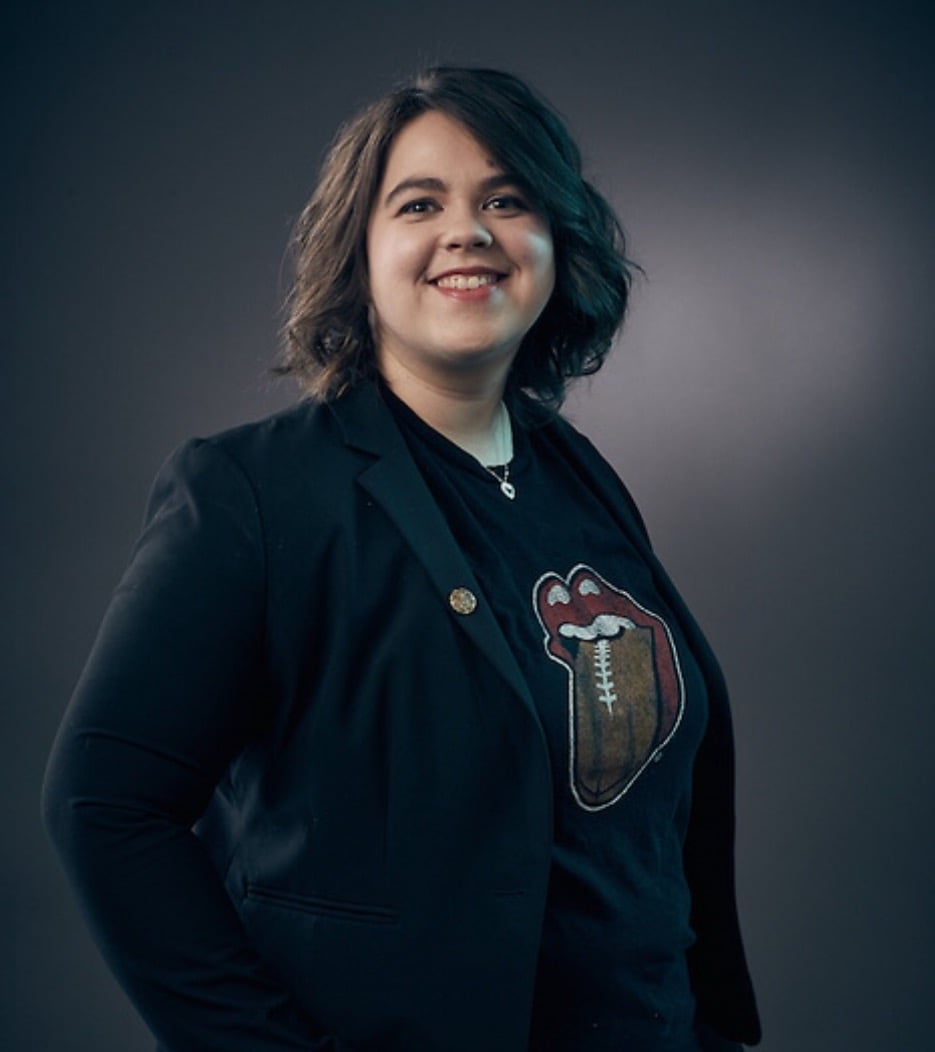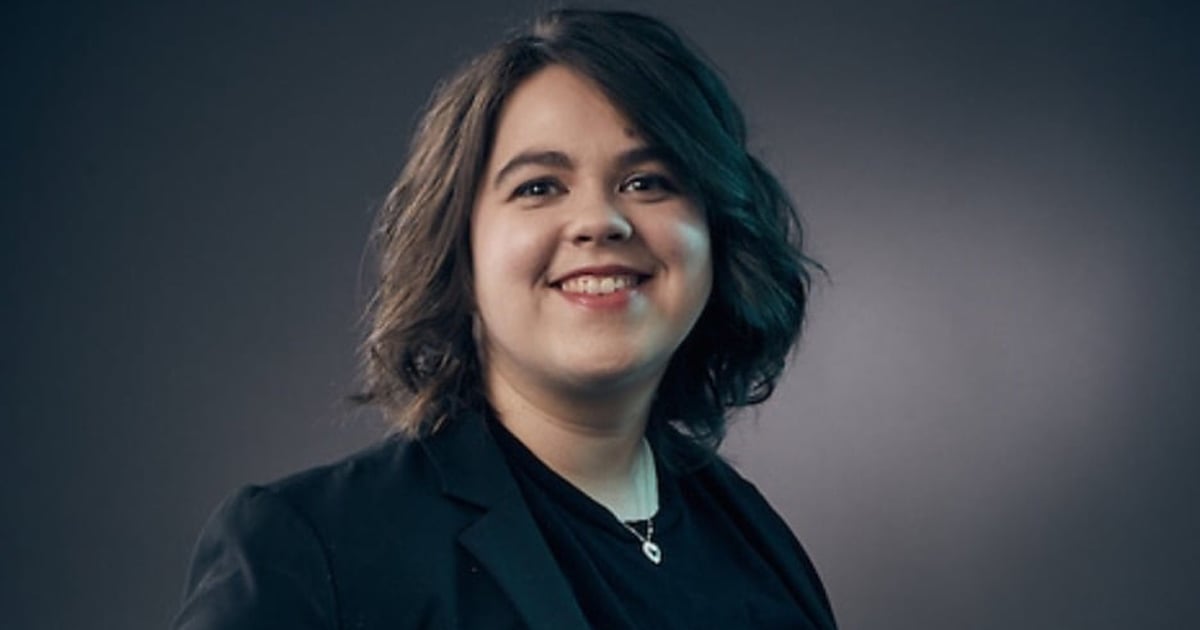
Maja Stevanovich was 30 years old when she was diagnosed with bipolar II and ADHD. “It rocked my world,” she told POPSUGAR. As a self-professed overachiever with a hunger to climb the corporate ladder, she didn’t want anything getting in the way of her success.
Stevanovich had worked hard her entire life. When she was 11 years old, her family moved from Serbia to the US, and though she spoke no English, she committed herself to acclimating quickly and succeeding in school to set herself up for a prolific career.
“I worked at one of the top marketing agencies in the country,” Stevanovich said. She created campaigns for Google, American Express, Verizon, and more, before becoming a federal civilian for the United States Air Force — something she called a privilege. “I was instrumental to their social media and digital transformation back in 2010,” she explained, “and I received two medals for exemplary civilian service in 2012 and 2014.”
That’s why her diagnosis was so difficult. For someone with such fierce focus and drive, learning that your brain isn’t operating the way you’ve come to expect is a shock on so many levels.
When a Thriving Career Gets Derailed
Bipolar II is one of several conditions that fall under the umbrella of bipolar disorder. Like bipolar I, the disorder is characterized by near-debilitating depression. But instead of experiencing full manic episodes, people with bipolar II have periods of hypomania, which are still incredibly challenging, though shorter and less disruptive. “It stopped me right in my tracks and had a significant impact on my life in all aspects,” Stevanovich said. “Specifically at work, I found out very quickly that stigma [surrounding mental illness] is real, and that mental health is by no means looked at the same as physical health conditions, especially in the corporate world.”
At the time, Stevanovich was experiencing “long and horrible” episodes that lasted anywhere from five to nine weeks at a time, and she continued to go to work for her Fortune 500 company all the while. “It was awful,” she said. “Some of the most awful times of my life.”
She decided to take back some control and ask for help where she needed it. In theory, things should have started to look up — but though Stevanovich was granted short-term disability leave, word spread like wildfire in her workplace. “I was questioned via text; my work phone and personal phone were blowing up with people wanting to find out what was ‘wrong’ with me,” she told POPSUGAR. “I was forced into having lunch with my supervisor, and against the advice of all my healthcare providers, I took it because I felt I needed to for my job security.”
Job security should be the least of your concerns when you’re navigating a diagnosis, but Stevanovich is not alone in her fear. A 2019 survey revealed that 55 percent of employees are scared to ask for a day to care for their mental health, let alone a leave of absence. It’s this anticipated discrimination that keeps the vast majority of workers with a mental illness from disclosing this information to their employer. There are protective measures in place, but even the World Health Organization acknowledges that anti-discrimination laws “have weak enforcement mechanisms.”
55 percent of employees are scared to ask for a day off to care for their mental health, let alone a leave of absence.
Stevanovich experienced this stigma and discrimination firsthand. During that work lunch, “[my boss] said, ‘I am trying to figure out what’s wrong with you. You can’t be depressed, I didn’t work you hard enough,'” she recalled. While she was on disability leave, the same supervisor asked how her vacation was going. Stevanovich told POPSUGAR that she had never felt more marginalized. It was as though she had gone from being a star hire at her firm to “a liability.” Her private health information was shared within the company — a blatant violation she took up with a senior executive — and the gossip in her workplace went so far as to make up details of her medical history. “They said I had some brain condition I didn’t have,” she said.
“When I came back to work, everything was different,” Stevanovich explained. “It was awkward and awful.” Though this was an incredibly hurtful experience for her, she knew she was strong enough to overcome it. “I am a hearty immigrant,” she said. “Nobody can truly break me down. If this was someone a little more timid, it would have been a disaster.”
That’s when Stevanovich decided that enough was enough and vowed to ensure that this would never happen again to anyone else. Within a few years, she had made advocacy her full-time job.
A Beacon of Hope to Fight the Stigma
Stevanovich used her years of corporate experience to found Braintuff and Maja Inc., a holding company that offers behavioral health consulting services. The companies share educational content and build events aimed at reducing the stigma surrounding mental health and helping people stay “mentally fit,” Stevanovich explained. The goal: to “create a healthier, happier society.”
“Twenty percent of the workforce is currently diagnosed with a mental health condition, and that’s just people who have been diagnosed,” she said, noting that many, many people go undiagnosed out of fear. Her business mission is to help workers better manage their mental health, by offering “a wide variety of behavioral health consulting to increase team and individual performance.”
“I took a few years to create this mental health ecosystem,” Stevanovich said. “I surrounded myself with all the top experts in various mental health spaces and read over 350 books — not just on mental health but spirituality, ancient texts, and anything I could get my hands on to come up with a plan to help better manage my emotions and deal with my condition.” From there, she built the foundation and assembled her team. “I know firsthand how absolutely awful this is,” she said. “The more people I can help, the more I feel at peace.”
As a business, Braintuff “fights mental health stigma through celebrity-infused micro-, large-scale, and digitally oriented events, focusing on awareness and education about mental health,” she explained. It’s also just a collective of real people, talking about real-world experiences with mental illness. “We are people from all walks of life: veterans, women, men, younger people, older people, different genders and races,” Stevanovich told POPSUGAR. The programming the organization offers is rounded out by experts and clinicians. But while Braintuff has high-profile partners, “what separates us is there aren’t many real people who have stepped up to the plate to share their own very real stories about depression, anxiety, PTSD, etc.,” she said.
“We are not apologetic about who we are. We are not victims. We are warriors, and we are striving to change the narrative about mental health.”
While Braintuff sparks honest conversations about living with mental illness, “we are not apologetic about who we are,” Stevanovich said. “We are not victims. We are warriors, and we are striving to change the narrative about mental health — to highlight our strengths rather than our weaknesses.” They also aim to highlight those who manage their conditions like “badasses,” in hopes that others will follow in their footsteps. “We are doing, and will do, as much as we can to normalize mental health, so those who need to get help — and aren’t getting it because of misinformation and stigma — do end up getting help,” she said.
Today, Stevanovich is doing worlds better than when she first got her diagnosis. In addition to being an entrepreneur and activist with her own organization, she also sits on the board for Wisconsin’s Mental Health America chapter, where she continues to help educate and empower others.
“I decided that I would get [my condition] under control, and I did,” she said, noting that both the care of her doctor and the work she put in on her own played a role in getting her to this place. “Now, my episodes last anywhere from two to three days and are much less disruptive to my life. However, this is still a chronic condition, so I can’t completely beat it, but I truly have it under control and am incredibly proud of myself and thankful for all those in my life who have stepped up to help.” Spoken like a true badass.
To continue following Stevanovich’s journey and to learn more about mental health activism in the workplace, you can follow her on Instagram or visit braintuff.com.
